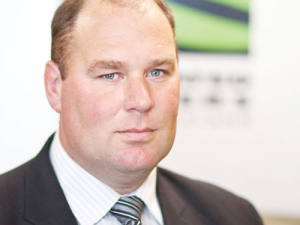Federated Farmers Dairy chairman Andrew Hoggard says the world markets have become more unstable despite an improvement in dairy prices.
Hoggard told the Feds dairy council meeting that urged farmers need to remain cautious.
“The global prices seem to have improved for this season, and I think we can start to get confident that this season will deliver a milk price that is reasonable but we need to remain cautious going ahead.
“A lot of the current market improvement is driven by world supply coming off its peak, with poor weather and poor prices reducing supply in NZ, Australia, and in Europe.
“Now that the prices have recovered if favourable weather hits globally how certain are we that supply won’t increase back again, and have we seen any great change in Global demand that would enable prices to remain steady? I’m not sure we have.”
Hoggard feels the world is even more of an unstable environment to be trading in now than it was this time last year.
“That instability could go either way. If the great wall of trump is built, will it actually mean increased dairy trade opportunities to the south of it for us, and decreased competition from north of it, because all the people that do the actual milking got deported?
“In Europe, will the Dutch farmers be forced to reduce their herd numbers to meet their phosphate limits, or will there politicians push the limit further out?
“Will the Trump/Putin bromance mean the Russian Dairy market opens up again, or will it remain closed?
“Again all of this is hard to know, the few things we do know are this, volatility is likely to be a constant companion.”
He also urged farmers to remain focussed on the environment.
Hoggard says most farmers are well aware of this.
“Quite frankly it is vitally important every farmer is doing the basics well here, waterways fenced, and effluent well managed.
“Going beyond that, it’s being aware and understanding what is the state of your local waterways, and what you could do about improving or safeguarding it.
“One clear goal I think the industry and individual farmers should have is to totally prevent harmful levels of faecal contaminants entering waterways. Most dairy farms are likely already very close to that, but that shouldn’t just be a goal for dairy farmers it should be a goal for all.”



















